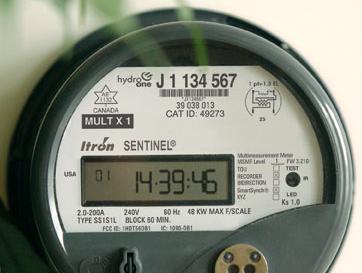

The 116,000 smart meter rollout in Pattaya City on Thailand’s eastern Gulf coast is piloting the technology ahead of a wider national rollout.
The City of Pattaya smart meter rollout, coming to its closing stages following delays due to the COVID-19 virus response, is one of the key components of the first stage of Thailand’s smart grid roadmap.
The 20-year roadmap initiative was launched in 2017 to develop a national smart grid, with the first stage for demonstrations and pilots running to the end of 2021.
The smart meter rollout, which is being undertaken by the Provincial Electricity Authority (PEA), is intended to gain experience of the technology and its benefits and learn lessons for the wider rollout, says Pongsakorn Yuthagovit, PEA Assistant Governor and the AMI project manager.
PEA, a Thai state enterprise and one of the largest utilities in southeast Asia, supplies electricity to 20.5 million households across the country, except in Bangkok and other central provinces.
The technology being deployed is Itron’s OpenWay Riva system, including the Itron Enterprise Edition meter data management solution.
“We were confident as the technology has been proven in the field many times,” says Yuthagovit, who cites key considerations for the architecture as interoperability and system performance and scalability.
Some other implementation challenges he mentions are the technology choices for an end-to-end system and the business process changes required within the organisation.
“There is involvement of all levels of employees from top management down to field workers. A dedicated project deployment management is needed and a good mindset is important,” he says.
Then there is integration with the company’s existing systems, in PEA’s case including an outage management system, GIS and SAP, and digitalisation across all systems such as moving to electronic billing.
Another key area of learning is the installation itself, with the need for the management of field crews and the back office support, Yuthagovit says.
In the Pattaya project, the smart meters have been installed at a rate of hundreds per day but in the national rollout the deployment will need to scale up to around 1 million meters per year.
Customer service also has proven to be a challenge, requiring a new level of customer engagement and a customer portal. Customer service representatives also need new skills to deal with bill queries and for example to follow up on meter tamper alerts.
Yuthagovit says that benefits are expected in terms of reduced operational costs, e.g. for meter reading and connection and disconnection, reduced technical and non-technical losses, reduced system peak load and reduced outage costs.
“The project should give information on these and we have developed a smartphone app Smart Plus, to provide information and share the benefits with customers,” he says.
Gallagher Re has shed light on the significant challenges insurers face when providing coverage for…
The Australian government will disburse AUD 1.7 million (USD 1.1m/EUR 1m) in grant funding to…
GlobalData’s latest report, ‘Asia Pacific Renewable Energy Policy Handbook 2024’ is among the latest region-specific…
The electrical generation market is facing a number of challenges, including the need to increase…
Nuclear energy has emerged as a prominent player in Asia's energy landscape, offering a reliable…
The pursuit of a low-carbon future has gained significant momentum globally, and Asia stands tall…